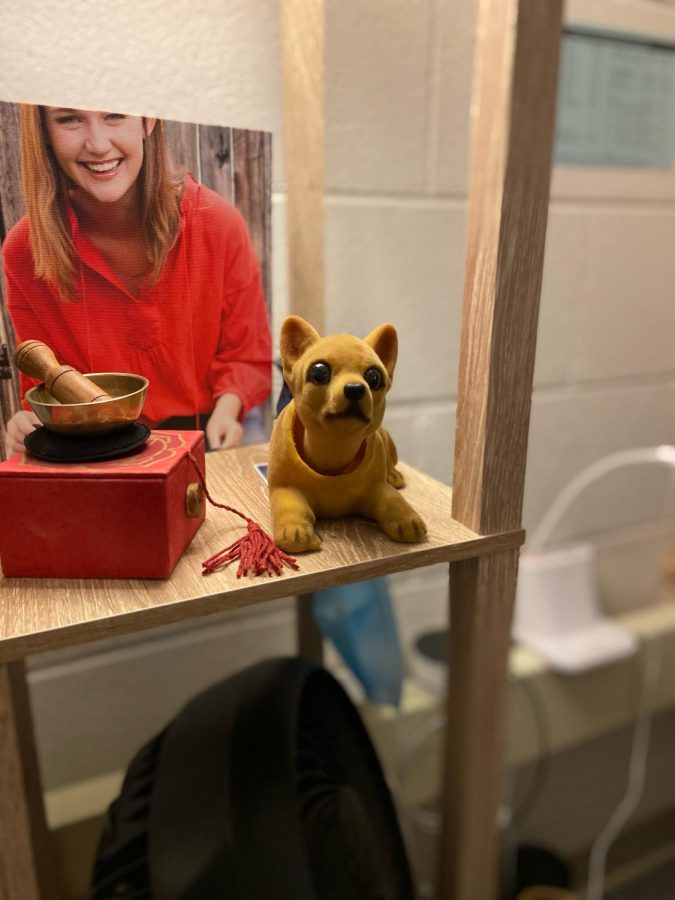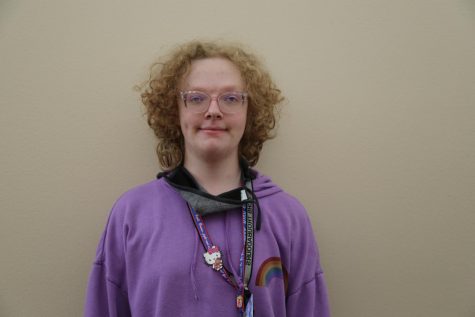The Changes Of The Pandemic, From A Faculty Perspective
Trinkets sit on a shelf in school psychologist Lisa Geissler’s office. “This is a new office for me this year, and that kind of stuff has helped me a ton,” she said of the items.
September 13, 2021
Dr. Lisa Geissler, school psychologist and dog mother, listens on her walkie-talkie for an alert that Doordash has delivered her Smashburger. The softly lit office has a TV playing a loop of beautiful landscapes. A bobblehead of her dog, Cheeto, sits on a shelf.
“This is a new office for me this year, and that kind of stuff has helped me a ton,” she says of the various items.
It was an odd moment for me to realize that the ambient knicknacks around the room calm her as well as her students. In the past 18 pandemic-ridden months, faculty and staff have been hit just as hard as the student body. The people of Creek weren’t prepared to handle the viral onslaught of this past year.
Andrew Russell, another psychologist who resides in the west building, recalls how his work in the counseling department was affected.
“We’re sort of like this built-in mental health system,” he says. “What we found last year was that a lot of this, it kind of short circuited. The whole thing is predicated on relationships. How do you work with somebody if you’re not there with them?”
Teachers’ connection with students was upended. They all suffered from the disconnect with their students, even luckily-prepared teachers such as Algebra teacher Paul Wiggins.
“I’ve been making videos for quite a while, for several years, so that part didn’t scare me too much,” he says. “But remote was tough because you don’t always know if kids are listening and paying attention.”
Yet as always, when one door closes, another one opens. Erika DeShay, Honors English teacher and poetry enthusiast, harnessed the sudden silence to reflect on herself and how she lives her life. “I think maybe everything [before the pandemic] felt really rushed. Last year, all of that went away, and it made everything feel a little bit better.”
The pandemic sparked change. One of slowness and reflection, of stopping to sniff the roses. While looking out at the overgrown East courtyard, with cicadas buzzing and a warm breeze blowing, DeShay eloquently states; “Some of us forgot there were roses to be sniffed.”


![Messages to those affected by the 9/11 attacks featured on the bottom of the front page of The Union St. Journal's Sep. 20, 2001 issue. Due to the long turnaround time of a high school newspaper, students were unable to feature more stories on 9/11 in the September issue, but filled the front page of the Oct, 18, 2001 issue (below) with 9/11-related articles. For teachers, supporting students – and figuring out how to manage their own emotions – was difficult. "We were instructed that counselors would be available should anyone need to talk. It felt like a surreal kind of dream," math teacher Jim Padavic said. "Once they [the Twin Towers] fell, there was a helplessness and sadness and disbelief that this could happen in America. The visuals of firemen and policemen volunteering to enter the towers to help followed by the collapse of the towers was gut-wrenching."](https://unionstreetjournal.com/wp-content/uploads/2021/09/IMG_2701-300x137.jpg)



















